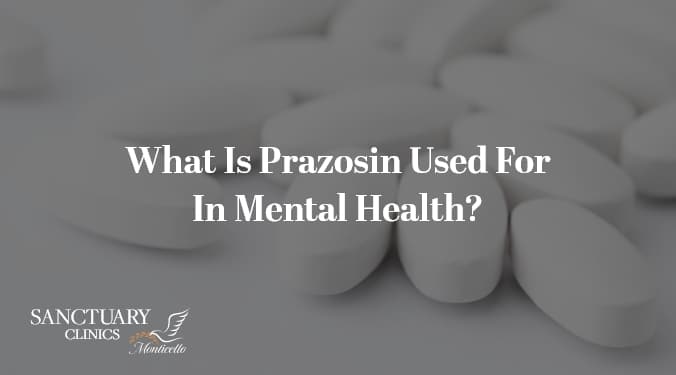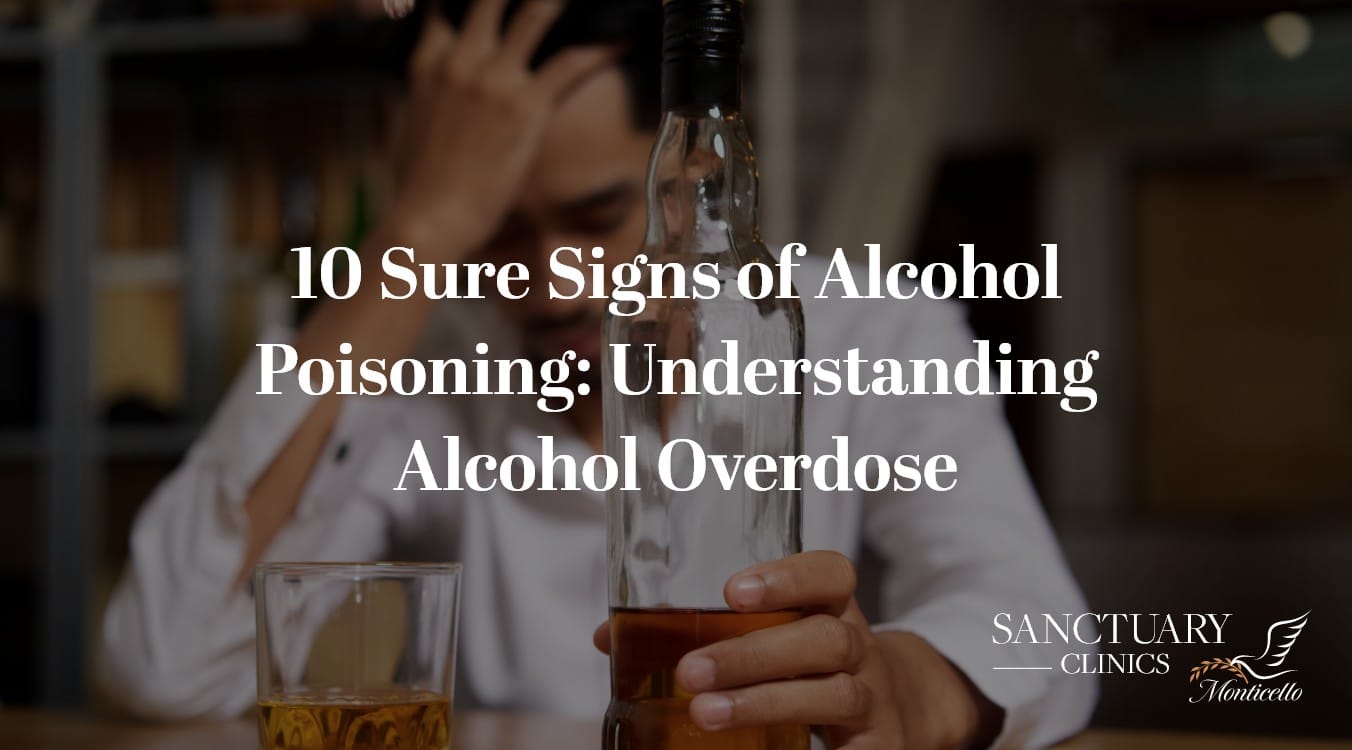Prazosin, in mental health, helps with a specific problem: nightmares that trouble people with PTSD or Posttraumatic Stress Disorder. Prazosin belongs to a class of medications known as alpha-1 adrenergic blockers. It is often used for long-term treatment. It doesn’t possess the glamour of blockbuster psychotropic drugs or other alpha blockers, but its utility is quietly significant. Here’s how it works: Prazosin relaxes blood vessels, and it also seems to calm down a brain system called noradrenaline. This system can mess up sleep and make nightmares worse for people with PTSD. Prazosin steps in to make those nightmares less scary and less often. These nightmares are more than just bad dreams; they are vivid, terrifying, and often reenact traumatic experiences, causing considerable emotional distress. Remember, Prazosin doesn’t cure PTSD or erase bad memories. But it gives people a break from the worst nightmares, so they can sleep better and handle therapy and other treatments more effectively.
At Sanctuary Clinics, we believe in providing correct information. Therefore, if you want to learn more about Prazosin and its treatment of nightmares, keep on reading.
How is prazosin used in mental health?
Prazosin finds its role in mental health by helping people with conditions like PTSD. Doctors usually prescribe Prazosin as a pill, and it’s taken by mouth. The idea is to take it before bedtime, which is when nightmares tend to strike most intensely for those with PTSD. Usually, doctors prefer it as a bedtime dose for this reason. Here’s how it works: Prazosin acts on the body’s blood vessels and the brain’s noradrenaline system. This double duty calms the body and mind. By relaxing blood vessels, it can reduce symptoms like increased heart rate and sweating during nightmares. At the same time, it seems to tone down the noradrenaline system, which plays a big role in nightmares. The second part is a bit like a snooze button for your brain’s alarm system. The noradrenaline system can go haywire when you have PTSD. Prazosin steps in and kind of tells it to take a break and not relive a traumatic event. Here’s the deal – Prazosin won’t erase bad memories, and it won’t make PTSD vanish. But it can make those awful nightmares less intense and less frequent. When nightmares aren’t ruling the night, you can sleep better. According to a study by Maju Mathew Koola, Prazosin can help you sleep better. And when you sleep better, you can handle therapy and other treatments much better too. It’s like Prazosin clears the way for you to get the help you need. The medication can help you with behavioral therapies like Cognitive-Behavioral therapy and trauma-based therapy. It may not be the best medication out there but it can be a lifesaver for those trying to manage the torment of PTSD-related nightmares.
What are the benefits of Prazosin for mental health conditions?
There are many benefits of Prazosin for mental health conditions. It mostly helps with the reduction of nightmares. While it mostly works for PTSD with nightmares, it might also work for other mental health conditions or mental illness. The efficacy of Prazosin has been documented multiple times. Remember, Prazosin doesn’t work the same for everyone, and it won’t erase your past. But it does provide a welcome break from the toughest parts of mental health conditions, letting you live a better life. Here’s how it makes life better:
- Fewer Nightmares: Prazosin reduces the number and intensity of PTSD-associated nightmares. For people with PTSD, this means less scary, sleep-disrupting dreams.
- Better Sleep: By tackling nightmares, Prazosin helps you get more restful sleep. Your sleep quality will be much better. And better sleep equals a happier, healthier you. The effects of Prazosin on sleep disturbances have been documented several times in systematic review and meta-analysis.
- Easier Therapy: With fewer nightmares to worry about, you can focus better in therapy and other treatments. Prazosin doesn’t replace therapy, but it makes it more effective.
- Less Anxiety: Prazosin also dials down anxiety linked to conditions like PTSD. It helps keep your stress levels in check.
- Improved Daily Life: When you are not exhausted from sleepless nights, you can handle your daily tasks more easily. Prazosin brings back some normalcy.
- Better Quality of Life: Overall, Prazosin boosts your quality of life. It eases the pain of traumatic memories and nightmares, offering a bit of peace. It also helps to reduce suicidal ideation.
- Additional Benefits: While Prazosin is used for a lot of common symptoms of mental illnesses, it is also used for other things. For instance, it is used when there is a drop in blood pressure or for prostatic hyperplasia. Also, dose of Prazosin used for drug abuse treatment has also shown results.
Get Help Today.
We are here to help you through every aspect of recovery.
Let us call you to learn more about our treatment options.
We are here to help you through every aspect of recovery. Let us call you to learn more about our treatment options.
Is Prazosin for psychiatric use?
Yes, Prazosin is for psychiatric use. It’s not just for high blood pressure; it helps with mental health too. People with conditions like PTSD can benefit from it. It helps to combat trauma PTSD or even some other psychiatric disorder. It makes nightmares less scary and frequent, which is a big help. So, while it might not be the first choice for mental health, it’s useful for improving people’s mental health. It can also help with the distressing symptoms of
- depressive disorder,
- alcohol use disorder,
- anxiety disorder
- PTSD-related nightmares
- Sleep disturbances related to PTSD
- Anxiety associated with PTSD
- High blood pressure (Hypertension)
- Raynaud’s disease
- Nightmares not related to PTSD (off-label use)
- Generalized anxiety disorder (off-label use, limited effectiveness)
- Social anxiety disorder (off-label use, limited effectiveness)
Its commercial name is minipress. You might notice some improvements in 1 to 2 weeks after starting prazosin. But, for the full benefits, it could take up to 8 week of treatment. The good signs are fewer nightmares and better sleep. Keep this in mind: even if you start feeling better or don’t see much change in the first few weeks, stick to taking prazosin as your doctor prescribed. If it doesn’t seem to be helping, or if the side effects bother you too much, have a chat with your doctor. They might suggest trying a different medication that works better for you. Your health is what matters most.
Does Prazosin Help with Anxiety?
Yes, Prazosin does help with anxiety, especially related to Chronic Post-Traumatic Stress Disorder. Prazosin can help with anxiety, especially when it’s connected to conditions like PTSD. It doesn’t directly target everyday anxiety, but it’s effective for anxiety that comes from things like bad memories and nightmares in chronic PTSD. It calms down a system that’s responsible for our stress reactions. So, if you are feeling really anxious because of traumatic memories, Prazosin can take the edge off that anxiety. Now, keep in mind that while Prazosin is useful for anxiety tied to PTSD, it’s not the go-to choice for general anxiety problems. Doctors usually have other options for that. But when it comes to PTSD-related anxiety, Prazosin can be a helpful tool to make those anxious moments nightmares in patients more manageable. Previous studies have pointed to the same.

Why is Prazosin used for PTSD?
Prazosin is used for PTSD because it’s great at tackling one tough symptom: nightmares. Although it’s mainly for high blood pressure and treatment of hypertension, it’s found a job in PTSD treatment. PTSD can haunt individuals with vivid, traumatic nightmares that often reenact their distressing experiences, causing significant distress and sleep disturbances. Prazosin steps in by dilating blood vessels and impacting the brain’s noradrenaline system. This dual action helps mitigate the physiological and psychological aspects of nightmares. When you sleep better, it’s easier to handle therapy and other treatments, and that’s why it’s helpful for people dealing with PTSD.
While the drug Prazosin is used for Post-Traumatic Stress Disorder, it does have some common side effects. Every medication has moderate to severe side effects. It is good to be aware of the adverse effects, so that in case something happens, you can reach out to a doctor and get medical advice. There are some potential side effects and negative effects of Prazosin dosage, as per clinical trials. The adverse side effects of Prazosin include:
- Extreme dizziness
- Heart palpitations
- Headache
- Weakness
- Lack of energy
- Blurred vision
- Orthostatic hypotension or postural hypotension
- Heart attack
- Frequent urination
These side effects were discovered in a trial of Prazosin. Before you take any doses of Prazosin for combat trauma, please consult a doctor. We, at Sanctuary Clinics, urge you to do the same before any self-medication. Doctors can also tell you if you need high-dose Prazosin or low-dose Prazosin. This way, you can get effective treatment. Therefore, approach Prazosin with caution. We know feeling bad and feelings of guilt might make you want to medicate yourself, but it’s not the right way. PTSD is a big deal, and you don’t have to handle it alone. If you are having a tough time, please ask for help. There are ways to make things better, like sleeping well and feeling better. PTSD can be difficult to manage but it is not impossible. You don’t have to suffer in silence; there is support out there for you. And, at Sanctuary Clinics, we are ready to give you that support.
Get Help Today.
We are here to help you through every aspect of recovery.
Let us call you to learn more about our treatment options.
We are here to help you through every aspect of recovery. Let us call you to learn more about our treatment options.









